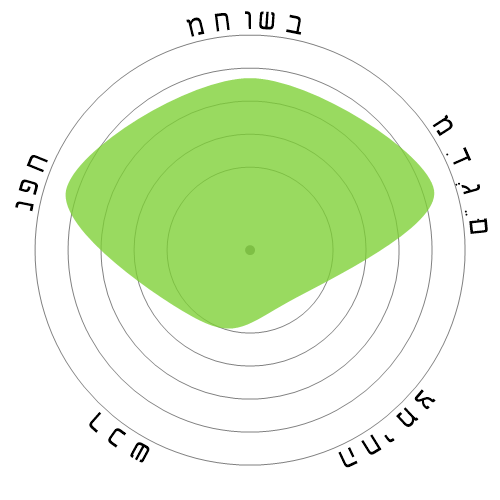אחיות מוסמכות פרקטיות ומקצועיות מורשות




אנשים צפו גם
סיכון אוטומציה מחושב
סיכון נמוך (21-40%): משרות ברמה זו מציגות סיכון מוגבל לאוטומציה, מאחר שהן דורשות שילוב של כישורים טכניים ומרכזיים אנושיים.
מידע נוסף על מהו הניקוד הזה, ואיך מחשבים אותו זמין כאן.
סקר משתמשים
המבקרים שלנו הצביעו שיש סיכוי נמוך שהמקצוע הזה ימורה לאוטומציה. הערכה זו מקבלת תמיכה נוספת מהמפתח של סיכון האוטומציה שנחשב, שמעריך 24% סיכוי לאוטומציה.
מה לדעתך הסיכון של אוטומציה?
מה הסיכוי שאחיות מוסמכות פרקטיות ומקצועיות מורשות יוחלף על ידי רובוטים או אינטיליגנציה מלאכותית במהלך ה-20 השנים הבאות?
צמיחה
מספר המשרות הפנויות בתחום 'Licensed Practical and Licensed Vocational Nurses' צפוי לעלות 2.6% עד 2033
תעסוקה כוללת, ומשרות פנויות משוערות
עדכונים לתחזיות משוערות צפויים להתבצע 09-2025.
שכר
ב-2023, השכר השנתי החציוני עבור 'Licensed Practical and Licensed Vocational Nurses' היה 59,730 $, או 28 $ לשעה
'Licensed Practical and Licensed Vocational Nurses' קיבלו שכר שהיה גבוה 24.3% מאשר השכר החציוני הלאומי, שעמד על 48,060 $
שכר לאורך זמן
נפח
נכון ל-2023 היו 630,250 אנשים שעסקו כ'Licensed Practical and Licensed Vocational Nurses' בארצות הברית.
זה מייצג בערך 0.42% מהכוח העובד ברחבי המדינה
במילים אחרות, כאחד מ-240 אנשים מועסקים כ'Licensed Practical and Licensed Vocational Nurses'.
תיאור המשרה
טיפול בחולים, פצועים, או מחלימים או אנשים עם מוגבלויות בבתי חולים, ביתי אבות, מרפאות, בתים פרטיים, בתי קבוצתיים ומוסדות דומים. ייתכן וייעבדו תחת הפיקוח של אחות רשומה. נדרשת רישיון.
SOC Code: 29-2061.00


תגובות
As an example, take the humanised skill of empathy. Empathy is the emotional skill to understand and share the feelings of another person. This shared emotional connection is something many, if not all, patients crave and desire. Empathy is something that AI cannot replicate well. In order for empathy to occur between two individuals, both individuals must be capable of emotions. Humans are capable of emotions, but AI robots are not. Emotions are biological, chemical, and mental reactions to certain stimuli. These reactions are uniquely inherent to organic living biological beings. An AI robot is not an organic living being, and thus cannot produce emotions. The best an AI can do is be programmed in a way to say certain things when a patient exhibits particular facial responses or verbal/tonal nuances. However, there is more to empathy than just being responsive. There exists a shared feeling that a human can only feel with another human, or another animal, especially when one of those humans is in a medically ill or injurious state.
Critical thinking serves as another example of a humanised skill that AI will find difficult to replicate. Critical thinking is the intellectual act of considering certain concepts, and constructing a charitable and objective take on said concepts through abstract reasoning or empirical evidence. To further this, the more unique and nuanced those concepts are, the more difficult it will be to critically think about said concepts. In the healthcare settings that LVNs find themselves in, there exists many unique concepts, or in this case, situations. I will illuminate one and that would be the case of patients with severe dementia. Patients with this mental condition may showcase behaviour that includes, but not limited to, loud screaming, random crying and potential desires for killing. What to do with these kind of patients is something LVNs face on a daily basis. Should the LVN just ignore the patient? Doing so may endanger the patient to him or herself, or worse, endanger other patients situated in the same room. Ignoring patients is also considered abuse in healthcare settings. On the other hand, ignoring the patient may allow the LVN to give care to other patients with much more debilitating conditions in the meantime, and thus allowing the LVN efficient time management. The LVN can also attend to that patient first, but only to administer medication that will calm him down, and make the LVN’s work less difficult. This may prove detrimental, if a family member of another patient asked the LVN to administer medicine to him first, because he missed a dose earlier in the day. With all this in mind, one can see how as an LVN there are many factors that they have to consider when making a reasonable decision, such as proper ethics, personal feelings, logical order of work, and so on. The LVN must be able to evaluate these factors and utilise his intellectual capacity for reason to support making the right decision. An AI’s intellectual capacity is much more rigid than a human’s mind. An AI robot cannot improvise at any given moment in the same fashion as a human. Unique situations, such as the aforementioned dementia case, requires a mind being able to asses many nuanced factors unique to the situation. Unfortunately, AI is just not capable yet of such critical thinking.
השאירו תגובה לגבי מקצוע זה